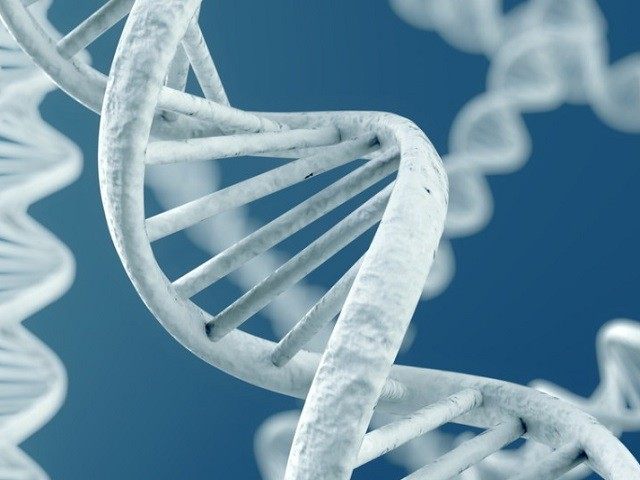In what is being dubbed “the most important new genetic engineering technique since the beginning of the biotechnology age in the 1970s,” scientists have made an enormous breakthrough in editing human genetic material. The possibilities of the technology are so vast that scientists themselves are already calling for ethical discussion and restraint.
In 2012, a protein called CRISPR-Cas9 that can function as a sort of “DNA scissors”—snipping out unwanted material and splicing in new material—was discovered in microbes. Scientists believe the protein can be adapted to remove disease-enabling mutations, replacing them with “corrected” DNA strings.
On Thursday, a group of 18 scientists and ethicists issued a joint warning that the revolutionary new genetic editing tool should be used cautiously when attempting to fix human genetic pathologies, and urged against attempts at modifying the human genome that could be passed on to offspring. Since the new technology dramatically simplifies the process of gene alteration, the need for ethical guidelines has become more apparent and pressing.
The authors wrote:
Given the speed with which the genome engineering field is evolving, our group concluded that there is an urgent need for open discussion of the merits and risks of human genome modification by a broad cohort of scientists, clinicians, social scientists, the general public and relevant public entities and interest groups.
The article was published in the March 20 issue of Science and is based on discussions that took place in Napa on January 24. The same issue of Science features an assembly of recent research papers, commentary, and news articles on the new technology and its implications.
Scientists and ethicists have urged caution before, but previously the technology to fix genetic defects was hard to use, whereas now it will be readily accessible to many.
“The simplicity of the CRISPR-Cas9 system enables any researcher with knowledge of molecular biology to modify genomes, making feasible many experiments that were previously difficult or impossible to conduct,” the scientists wrote.
Promotors of the technology suggest that the CRISPR-Cas9 protein may eventually give doctors the capability of treating or preventing illnesses such as cancers, muscular dystrophy, and HIV/AIDS by altering the genetic coding that disposes a person to them. Nonetheless, the scientists themselves are quick to caution that there is a tremendous amount they do not know and cannot now foresee.
The idea of moving the ethical debate beyond the circle of scientists and opening it to the general public seems particularly enlightened and welcome.
Few have illustrated the relationship between science and ethics more honestly and humbly than the highly articulate neuroscientist Dr. Maureen L. Condic of the University of Utah.
Condic has highlighted the fact that scientists, while competent in their own field, may be utterly illiterate in ethical questions. “Science as a profession is fundamentally amoral,” she said. “There is no moral judgment in science. To say what’s the scientific view of a moral issue is a question that is fundamentally nonsensical.”
“Scientists, however, are human beings and we are all striving in our own way to reconcile our personal beliefs with our profession, what we do and why we do it,” she said. “And yet my personal opinion about the morality or immorality of what I do is simply that: it is not a scientific position.”
“We put up scientific experts and say, ‘Well, because you’ve won the Nobel Prize, what is your moral feeling?’ But the reality is that winning the Nobel Prize does not mean that the person has any particular capacity to evaluate the moral dimension of his or her work,” she said.
From pasteurization to the atomic bomb to the polio vaccine to Birkenau gas chambers, science has provided knowledge and power equally capable of good and evil. The moral and ethical questions of what we are now capable of doing are too big to be left to scientists alone and necessarily engage every thinking person.
As Dr. Condic has noted, it is a mistake “to conflate the expertise of a scientist in the field of science with credibility to their moral position. I think ultimately society is responsible to come up with these judgments and scientists are obliged to bow to those judgments.”
The Napa meeting in January was born of a desire to identify proactively those areas where current action is needed to prepare for future developments. “We recommend taking immediate steps toward ensuring that the application of genome engineering technology is performed safely and ethically,” the authors said.
“We believe that initiating these fascinating and challenging discussions now will optimize the decisions society will make at the advent of a new era in biology and genetics,” the authors concluded.
Follow Thomas D. Williams on Twitter @tdwilliamsrome.

COMMENTS
Please let us know if you're having issues with commenting.